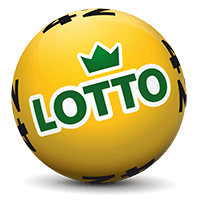
Lotteries have been a popular form of entertainment and a means of raising funds for centuries. While most people are familiar with traditional lottery systems that involve picking numbers or scratching off tickets, there is a fascinating world of unconventional lottery systems that exist around the globe. These unique systems offer intriguing twists on the classic lottery model, often reflecting the culture, history, or creativity of their regions.
In this exploration of unusual lottery systems, we will journey through different countries to discover how they have put their own spin on the concept of luck and chance. From lotteries that incorporate elements of local traditions to those that are designed with quirky rules and formats, these systems provide a diverse array of gaming experiences. Whether it’s a lottery that involves predicting the outcome of a sporting event or one that links winning numbers to historical events, the creativity behind these systems is sure to captivate and surprise.
Join us as we delve into the world of unusual lottery systems, where we will uncover the stories and mechanics behind these innovative games. Prepare to be amazed by how different cultures interpret the concept of a lottery, and perhaps gain a new appreciation for the myriad ways people around the world enjoy a game of chance.
Exploring Unusual Lottery Systems Around the Globe
Lottery systems have been a fascinating aspect of human culture for centuries, evolving in various ways depending on local customs, beliefs, and regulations. While many people are familiar with the traditional lottery formats, there are numerous unusual systems around the world that offer unique twists on the classic game of chance. This article delves into some of the most intriguing and unconventional lottery systems, showcasing how different cultures have put their own spin on winning big.
From lotteries that incorporate elements of national traditions to those that present innovative formats, the variety of systems reflects a rich tapestry of global diversity. Whether it’s the integration of historical figures or the use of unconventional drawing methods, these lotteries provide a glimpse into how creativity and tradition can merge in unexpected ways. Let’s explore some of these extraordinary lottery systems.
Unique Lottery Systems
- Spanish El Gordo: One of the oldest and largest lotteries in the world, Spain’s El Gordo (“The Fat One”) is famous for its massive prize pool and its role in Spanish Christmas traditions. Unlike many lotteries, El Gordo tickets are quite expensive, but they offer a wide range of prizes, with the top prize amounting to several million euros.
- North Korean Lottery: North Korea operates a lottery system that is both rare and mysterious. The lottery is used as a tool for the state to raise funds, and details about the drawing process are kept highly secretive. Winning is said to be extremely rare, but the lottery is seen as a way to generate public interest and support.
- Singapore’s 4D Lottery: Singapore offers a lottery known as the 4D (Four-Digits) lottery, where players choose a four-digit number. Drawings occur several times a week, and prizes are awarded based on the number’s position in the draw. This system stands out for its simplicity and the frequency of its draws.
- Japan’s Numbers Lottery: Japan’s Numbers Lottery involves selecting numbers from a set range and matching them in specific combinations. The game includes various formats, including daily and weekly draws, each with its own rules and prize structures.
Conclusion
Exploring these unusual lottery systems reveals not only the diversity in how lotteries are structured but also how they reflect cultural values and societal norms. Each system provides a unique window into the way different cultures approach luck and chance, offering a broader perspective on what lotteries can be beyond the conventional formats. As we continue to learn about these global lottery systems, we gain a deeper appreciation for the inventive and varied ways people engage with games of chance.
Unique Lottery Formats: From Traditional to Unconventional
Lotteries have been a part of human culture for centuries, providing both excitement and the tantalizing possibility of instant wealth. While many lotteries follow a standard format–drawing numbers from a set range–there are some fascinating examples around the globe that break the mold. These unique lottery formats highlight the diversity of lottery systems and offer a glimpse into how different cultures have put their own spin on the concept of chance and luck.
In this exploration of unconventional lottery systems, we’ll look at some of the most intriguing formats that stand out due to their distinctive rules, structures, and cultural significance. From traditional games with a twist to entirely novel approaches, these lotteries demonstrate the creative ways people engage with the concept of randomness and fortune.
Traditional Meets Innovative
Many lottery systems are grounded in classic formats, but even these can have unique twists. Some lotteries incorporate local customs or historical elements into their design. For example:
- Spanish El Gordo: Known for its massive prize pool, El Gordo is a traditional Spanish lottery with a twist. Tickets are divided into multiple fractions, allowing many people to win smaller amounts, creating a communal feeling of shared luck.
- Italian SuperEnalotto: This lottery is famous for its enormous jackpots. Players choose six numbers from a pool of 90, and the jackpot can reach astounding amounts if no one matches all six numbers.
However, some lotteries have adopted more unconventional formats:
Unconventional Formats
As lotteries continue to evolve, several unusual formats have emerged, each bringing its own unique flair to the game:
- Australian Powerball: Unlike traditional lotteries, this game involves a two-drum system. Players select numbers from one drum and a Powerball from another, adding an extra layer of complexity to the game.
- French Keno: Keno is a lottery-style game where players choose up to 10 numbers from a pool of 70. The game draws 20 numbers, and the more matches players have, the higher their payout. Its format resembles a mix between lottery and bingo.
- Chinese Welfare Lottery: This lottery has a variety of formats including traditional number draws and instant scratch cards. It is not just a game of chance but also a way to support social welfare programs in China.
These diverse formats show that while the core concept of the lottery–chance and reward–remains consistent, the methods and styles can vary widely. Whether through innovative drawing methods, unique rules, or cultural adaptations, each lottery system provides a distinctive experience for its participants.
Remarkable Lottery Systems That Challenge the Norm
While most lotteries around the world follow a fairly standard format, some unique systems stand out for their unconventional rules and intriguing features. These lotteries not only offer different ways to win but also reflect diverse cultural approaches to chance and reward. Exploring these systems provides insight into how various societies interpret luck and fortune.
One of the most fascinating aspects of unusual lottery systems is how they challenge traditional expectations. From systems that require players to match numbers in unconventional ways to those that offer prizes for specific combinations of numbers and symbols, these lotteries push the boundaries of what a lottery can be.
Examples of Unusual Lottery Systems
- Japanese Takarakuji: This lottery system involves not only the usual number matching but also a variety of unique games. For instance, the “Numbers” game requires players to choose a set of numbers that can win in multiple ways, adding layers of complexity and excitement.
- Spanish El Gordo: Known as “The Fat One,” this lottery is famous for its massive prize pool and unique drawing process. Instead of one large jackpot, it offers numerous smaller prizes, making the odds of winning something much higher.
- Australian Powerball: This lottery introduces a twist with its “Powerball” number, which is drawn separately from the main numbers. Players must match both the main numbers and the Powerball to win the top prize, adding an extra layer of strategy.
These systems not only offer different ways to win but also reflect how cultures around the world have adapted the concept of lotteries to fit their own traditions and preferences.
How Unusual Lotteries Reflect Cultural Differences Worldwide
Unusual lottery systems around the world offer a fascinating glimpse into the diverse cultural landscapes that shape them. From the intricately designed annual sweepstakes in Spain to the community-centered lotteries in rural parts of Africa, these systems reveal much about the societies in which they thrive. They often embody local traditions, values, and historical contexts, providing not just a chance to win, but also a unique window into the cultural fabric of different regions.
By examining these unconventional lotteries, we gain insight into how people perceive luck, wealth, and communal participation. These systems are more than mere games of chance; they are reflections of societal norms and collective identities. Each lottery has its own story to tell, influenced by regional practices and historical events that have shaped its current form.
Conclusion
In conclusion, unusual lottery systems are a testament to the rich cultural diversity across the globe. They serve as a reminder that while the concept of a lottery might be universal, its expression is deeply rooted in the local culture. Whether through community involvement, historical symbolism, or unique gameplay mechanics, these lotteries offer a vibrant snapshot of how different societies engage with the concept of chance and reward.
Understanding these variations helps us appreciate the broader spectrum of human experience and the myriad ways in which people connect with tradition, luck, and each other. As such, exploring these unusual lottery systems not only entertains but also educates us about the intricate mosaic of global cultures.
